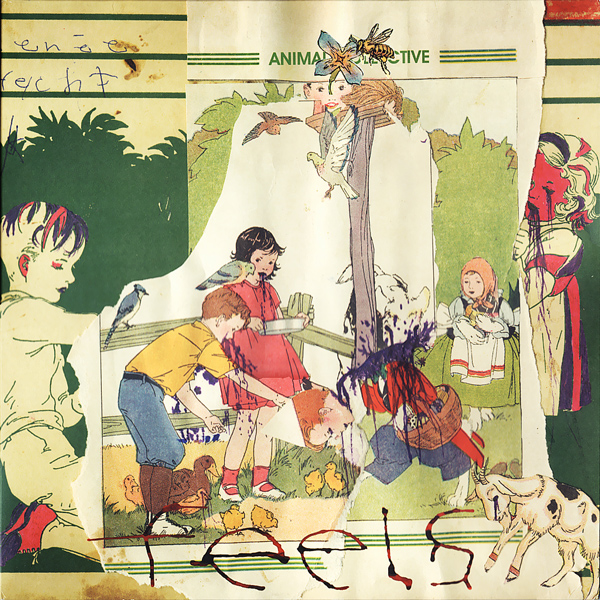
40.
Animal Collective
Feels
[FatCat; 2005]
Feels is a grassy, weed-ridden plain whose dusty air is injected with the life blood of an artistic outfit operating with a complete lack of self-awareness. It’s a liberating experience; the track listing is clumped, the textures scattershot, the melodies drifting, and none of it matters. In fact it’s endearing, because this band carries with them such levels of good intention and fearlessness that it’s difficult not to fall in love. All that is not to say there is no direction. The hooks of “Do You See the Words?” and “Grass” are hardly an accident; they are signs of a group of expert sound makers turning into expert song writers. On the other hand, the silent dementia and ecstatic howls of “Banshee Beat” sound like nothing resembling an preconceived act. That’s what makes this album as well as this group such an exciting prospect; they’ve seemingly perfected their both messy and finely tuned craft, yet they have a naïve disregard for their expertise. It feels like they could easily put out a bad album without knowing it, but that they don’t is part of the magic. It’s a breath of fresh air in a world of precisely calculated music.
– Ian Barker
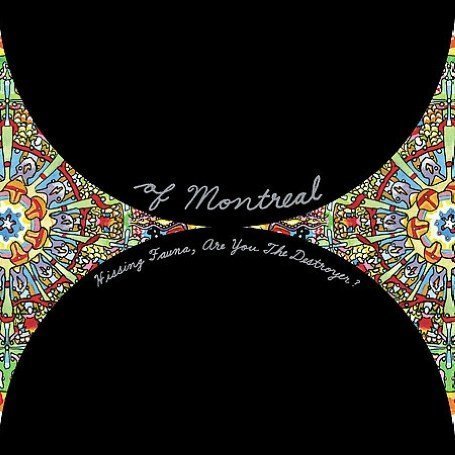
39.
of Montreal
Hissing Fauna, Are You The Destroyer?
[Polyvinyl; 2007]
Few bands have had as bizarre a trajectory – nor do they inspire as much hatred or devotion – as Athens, Georgia one-man band Of Montreal. From a relatively quirky folk band to a bedroom-disco-pop band to full-out faux-homosexual minstrel show, Kevin Barnes’ one-man band has only become more intensely idiosyncratic over time. Things reached a natural (and unavoidable – everything after is just jumping the shark) peak with 2007’s Hissing Fauna, Are You The Destroyer?, an album recorded in Norway’s dark winter during a bout of depression. In typical Barnes fashion, the music sounds nothing like what you’d expect (remember when Of Montreal wasn’t predictable?) from that backstory but rather bustling and exuberant. Until you listen to the lyrics, anyway. Songs such as “A Sentence Of Sorts In Kongsvinger” and “Heimdalsgate Like A Promthean Curse” pair lyrics like “I spent the winter on the verge of a total breakdown/while living in Norway” and “I’m in a crisis/I need help/Come on mood shift/Shift back to good again” with fast tempos, synth horns, and intricately layered vocals. The album is so cloying and overproduced that it’s bound to be as infuriating as it can be enjoyable – you just have to go in with the right mindset. Even the 12-minute spoken-word Krautrock epic is against-all-odds wonderful (“The Past Is A Grotesque Animal”), and sounds just fine followed by a bunch of batshit-insane funk songs sung by black transsexual alter ego Georgie Fruit. There’s a thin line between experimentalism and excess – Barnes crossed it with next album Skeletal Lamping and probably forever after that – but Hissing Fauna, Are You The Destroyer? instead fearlessly straddles it, treating it like a stripper pole rather than any sort of moral guidance.
– Andrew Ryce
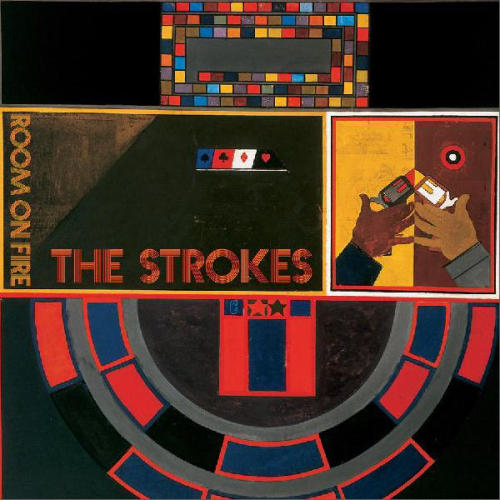
38.
The Strokes
Room on Fire
[RCA; 2003]
The Strokes’ first album Is This It hit in 2001, and everyone hailed the band as revivalists of NYC glam garage rock. There was so much hype surrounding Is This It, it makes me uncomfortable just thinking about the amount of pressure that The Strokes were under to create yet another brilliant album. While some people were disappointed with Room on Fire, it’s actually a fantastic sophomore effort that does well to recapture the essence of the New York City cool previously found on Is This It. At the same time, Room on Fire is a juggling act, hinting at the band trying to move forward while maintaining the hallmarks found on their successful debut – fuzzy vocals, anecdotes on fast NYC night life, and a focus on rhythm. Frontman and primary songwriter Julian Casablancas’ musical progression can be found on tracks like “Reptilia,” which is a furious bassline-and-drum-driven track that possesses a bit more bite than anything previously seen from The Strokes. “12:51” shows Casablancas’ growing penchant for synth-heavy songwriting reminiscent of The Cars. Room on Fire asserted that The Strokes were not just fleeting indie rockers in a decade where indie bands were so ubiquitous, and a decade later, they’re still with us.
– Arika Dean

37.
Beck
Sea Change
[DGC; 2002]
Just because something isn’t widely regarded as a masterpiece doesn’t mean it isn’t. Sea Change was one of those albums that never really got the attention it deserved at the time it came out. Never before had Beck attempted something so serious. Sure, Mutations was mellow, but even it had moments like “Tropicalia” to keep things light. From the start, it’s pretty obvious that Beck is full on dour-faced as he sings “These days I barely get by/I don’t even try,” and looking back it appears that the public wasn’t ready for this new revelation of Beck. It’s a stunning shift from a man who was writing about “two turntables and a microphone” only two albums ago. From the orchestral flair on “Paper Tiger” to the lush reverb-laden landscapes of the “Golden Age,” Nigel Godrich makes his presence felt and takes Beck’s songs of longing to levels that they couldn’t have otherwise reached.
– Colin Joyce
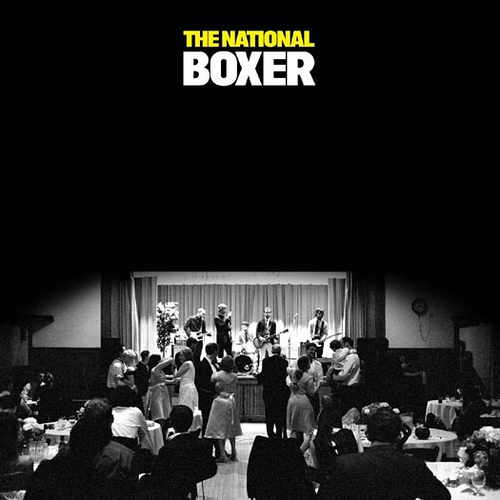
36.
The National
Boxer
[Beggars Banquet; 2007]
The opening tones of Boxer are like the sound of someone waking up, clearing the sleep from their eyes and making a fumbled gesture to pick up their watch and see what time it is. But instead of it being another morning, Boxer is the sound of a prolonged night out with weary street lights casting a humming glow upon your passing and strangers shuffling by in thick trench coats and scared looks. It’s probably raining, too. Boxer might well be one of the most apt soundtracks to a lonely walk in a near desolate city at night.
Nonetheless, Berninger still sounds as spiteful as ever throughout from his seemingly pointless and ignored presence at a party on “Slow Show” to his obsessive imagining of occupying the lives of all the people he’s lost contact with on “Green Gloves”. In some respects Boxer is somewhat more sombre than Alligator, but it still lashes out like the persistent (and excellent) drums of “Squalor Victoria” and the drowning riff of “Mistaken For Strangers”. Boxer has become synonymous with the literal image of a boxer taking time to wear down and overcome, but once you do, you will tentatively await the night. And pray for rain.
– Ray Finlayson

35.
Yo La Tengo
And Then Nothing Turned Itself Inside Out
[Matador; 2000]
Perpetual sonic chameleons Yo La Tengo have never rested in one place for long. For instance, the band followed up 1991’s Fakebook, an album filled mostly with cover songs played with acoustic instruments, with May I Sing With Me, an album that still stands as the band’s most abrasively noise-filled. So after congealing all of their influences into a singular sound on I Can Hear The Heart Beating As One in 1997, they entered the new millennium in a hush with another lengthily-titled album, And Then Nothing Turned Itself Inside Out. Over 77 minutes that barely rise above a whisper, save for the rocket-fueled “Cherry Chapstick,” Yo La Tengo strike beautiful, beautiful gold with 13 achingly gorgeous tunes – mostly love songs that make Ira Kaplan and Georgia Hubley’s marriage seem like the antithesis of any rock and roll relationship you’ve ever heard of. Standout “Our Way to Fall” captures butterflies-in-the-stomach attraction with specific-yet-universal lines like “I remember sitting next to you / I remember pretending I wasn’t looking.” The band creates a late summer’s night atmosphere that carries throughout to the album-closing super-epic “Night Falls on Hoboken,” a long, languid sprawl that unravels over the course of 17 blissful minutes. We can be thankful that Yo La Tengo would crank up the amps again later in the decade, but And Then Nothing stands as their most gorgeous, and arguably most complete, work.
– Bill Delaney
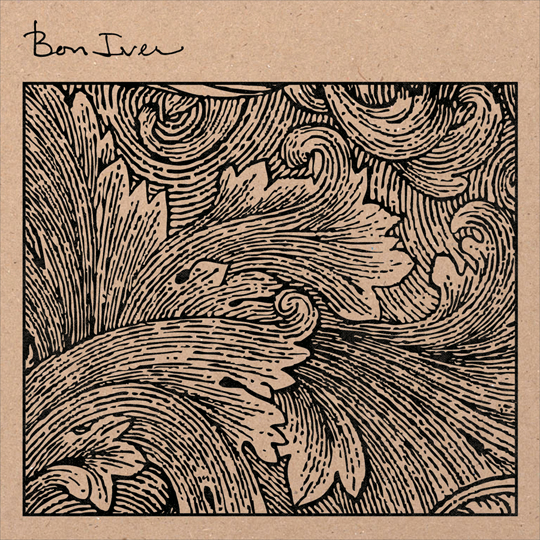
34.
Bon Iver
For Emma, Forever Ago
[Self-Released / Jagjaguwar / 4AD; 2007]
It’s a classic tale that’s not worth rattling off again because everyone seems familiar with some version of it now (right down to the story where “[Justin Vernon] killed two wolves with his bare hands!”). The steady popularity this album has built over the past two years has been somewhat overwhelming and surprising to me, but it’s not like it not earned. For Emma, Forever Ago is a calming and soothing exercise in solitude that expands outwards without ever leaving the confines of the cabin (though yes, some parts were recorded when he returned to civilization). The lonely strums as he sings lines like “I am my mother’s only one” and “your love will be safe with me” are just as moving and heartbreaking as unabashed snarls like “If all your love was wasted/ then who the hell was I?” on “Skinny Love.” The album is the devastatingly sublime soundtrack to Vernon’s mind as he accepts the turns his life has taken and the situation he is now in. It’s easy enough to relate to that but impossible to recreate.
– Ray Finlayson
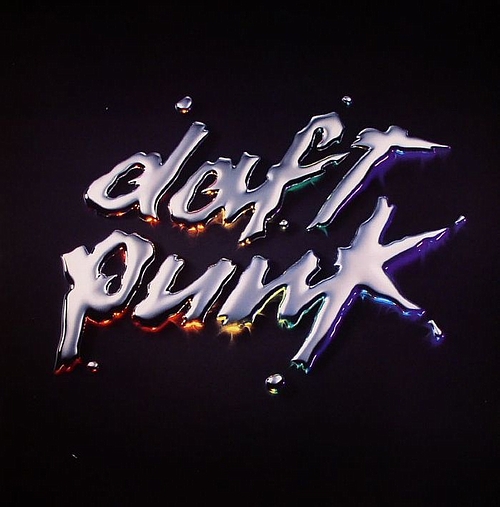
33.
Daft Punk
Discovery
[Virgin; 2001]
A lot of great albums – even classic albums – take a little while to get revved up. On Daft Punk’s Discovery, immediacy is the word. Three seconds into “One More Time,” and we’re served one of the decade’s most lovably delectable electronic riffs. Plus, it’s one of the most recognizable musical fanfares to date, the house equivalent of “Seven Nation Army”’s now-legendary bassline.
The first 17 minutes are unrelenting in holding true to Daft Punk’s “no second wasted” aesthetic. Then Discovery becomes something else entirely, and at this point the kids who loved the first four tracks stop listening. Boy, are they missing out. The album’s remaining 43 minutes outline techno bliss at its finest. I have no doubt that Discovery could have been a continuation of what its first third seemed to promise, but then I wouldn’t be describing it with words like “euphoric” or “transcendental.”
Discovery is made of evocative music at heart. That’s what makes it so special. To me, it is a soundtrack to brisk evenings in early spring. Who knows what it could mean to you…
– Daniel Smith
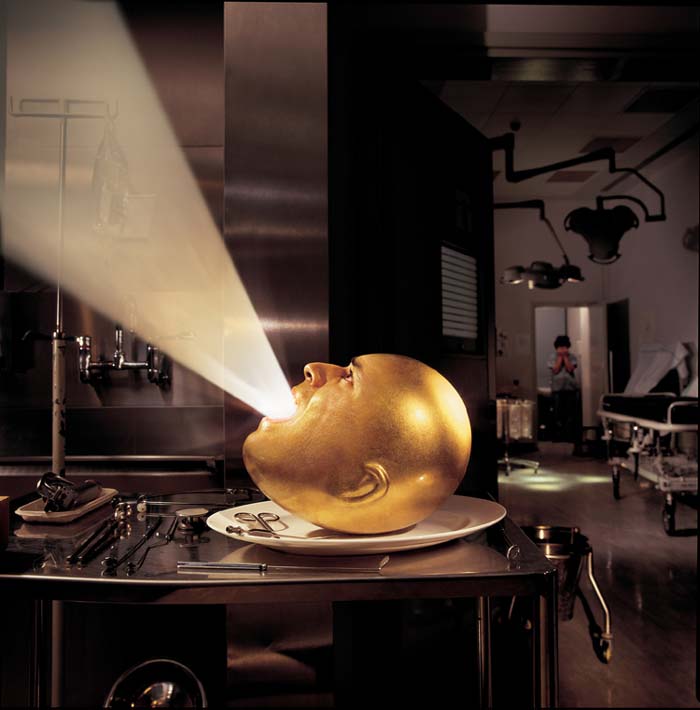
32.
The Mars Volta
De-Loused in the Comatorium
[GSL / Universal / Strummer; 2003]
Possibly the most positive thing about the digital music revolution is the kind of bands that get popular now that would never have had a prayer before. Do you think a group made up of the arty half of At the Drive-In and a few of their friends that could be reasonably described as a mix of Rush, Santana and Frank Zappa would have been able to be signed to any kind of a major label in 1995? Highly doubtful. The Mars Volta’s second album, 2005’s Frances the Mute, came somewhat close to equaling the majesty of this debut, but their subsequent albums have become increasingly self-absorbed and inscrutable, with only a few truly memorable moments. But seven years later I can still listen to De-Loused in the Comatorium and understand why they are permanently on the Radiohead level of bands whose albums are must-buys, regardless of content. I still buy everything they put out, more to support their existence than because I’m particularly interested in what they’re releasing – and this album is why. De-Loused is an absolutely perfect debut, the kind of record that defines a group’s sound forever while getting very little wrong. Cedric Bixler Zavala’s otherworldly howl has never made much lyrical sense, and can come off as grating when backed with directionless music. But that isn’t to be found here. Guitarist Omar Rodriguez-Lopez plays with the inspired fury of Jimmy Page and Carlos Santana, pushing these songs’ dynamics flawlessly.
– Sean Highkin
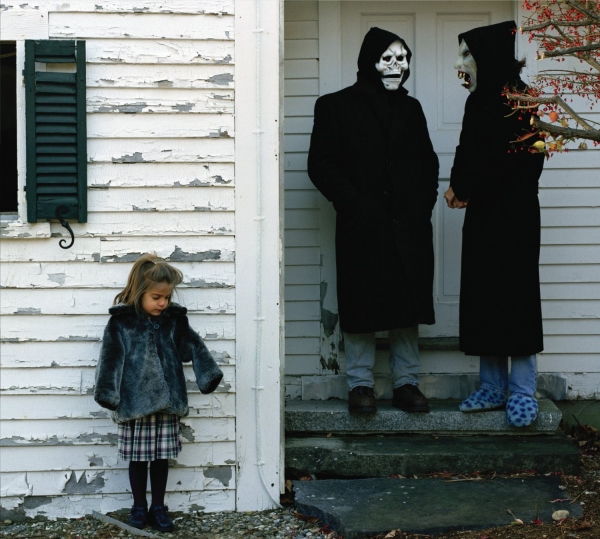
31.
Brand New
The Devil and God Are Raging Inside Me
[Interscope; 2006]
“Genre defying.” “Landmark album of the so-called ’emo-punk.'”
Where does a band go after releasing an album that receives those superlatives (2003’s Deja Entendu)? Better yet, how does a band end up on an indie music site’s decade list if they’re considered the penultimate group of the MTV dubbed “emo-punk” genre? They do so by creating an album that had fans wondering if they were a different band all together – if, just maybe, they were pulling a prank.
The Devil and God Are Raging Inside Me is an album that is, yes, emotional, but is also atmospheric, dark and incredibly honest. The album’s sound also matured, seemingly with the band members themselves. For my money, the band’s never written a better section of music than the one found in the album’s centerpiece, “Limousine,” when Lacey sings, “And in the choir, I saw our sad Messiah/He was bored and tired of my laments/Said, ‘I died for you one time, but never again.'”
But beyond Lacey’s typically well written lyrics, this album finds Brand New toying with a new sound, one that, while not revolutionary, is particularly effective in conveying some of the raw emotions at play on this record. For proof, seek out the absolutely shred-worthy moment at 1:37 when Lacey unharnesses his vocals for an incredibly moving “You Won’t Know.” Or try to listen to Luca without being caught off guard by the shift from “you-can-hear-a-pin-drop” quiet to the “should we call the police?” loud at 3:54.
The Devil and God Are Raging Inside Me is an album full of these moments – the ones that get stuck in your head at work, or pop into your mind in the quiet darkness of your room before falling asleep. And it’s sequenced in such a way that you can’t stop after five tracks; there’s always more to look forward to if you just listen to one more song.
– Larry Weaver

